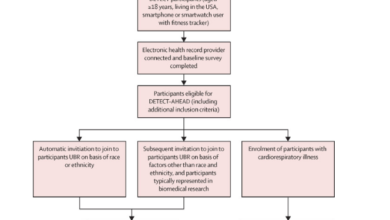“Unlock the Secrets of Ultra-Processed Foods: How They Rewire Your Brain and Propel You Towards Obesity! #ShockingStudy”

In an upcoming article slated for publication in the Foods Contemporary Clinical Trials journal, researchers are investigating the impact of consuming ultra-processed foods (UPF) on physiological processes related to energy intake (EI) and reward processing.
READ: “Shocking: American Heart Association Links Daily Marijuana Use to 34% Higher Risk of Heart Failure”
The global increase in overweight and obesity, contributing to health issues like heart disease, has prompted scientists to explore the risks even among young individuals (aged 18 to 30) who maintain a medically recommended weight. Studies indicate a high likelihood of this demographic transitioning to overweight or obesity over the next 25 years.
Foods
Extensive documentation highlights poor dietary habits among adolescents and young adults in the United States, with over two-thirds of their energy intake attributed to UPF and a scarcity of whole foods. Concerns arise from the potential of these foods to alter decision-making processes related to diet and contribute to the development of overweight and obesity.
Research has shown that UPF, despite being high in rewards, lacks essential nutrition. Both human and rat studies reveal the impact of processed foods on the dopamine system in the brain. The lower functioning of D2 dopamine receptors (D2R) in the striatum, a region associated with regulating food intake and reward, is linked to weight gain in rats fed high UPF diets.
While previous research has indicated a correlation between high body mass index (BMI) in humans and reduced D2R function, only one trial has explored this in adults. No studies have focused on how UPF consumption in early adulthood might alter brain chemistry and influence food reward perception.
The ongoing clinical trial aims to recruit participants aged 18 to 25, categorizing them as either sedentary or recreationally active, with exclusion criteria for those with food allergies. The study involves physical examinations, dietary recall assessments, and mock functional magnetic resonance imaging (fMRI) scans to ensure participants are not claustrophobic.
Baseline data collection includes body weight and composition measurements, fMRI scans, delay discounting tasks, and cognitive executive function (EF) assessments. Researchers plan to expose participants to two diets, each lasting two weeks, with one containing 81% UPF in energy intake and the other devoid of UPF. Both diets will be designed to match in overall quality, nutrients, texture, and palatability.
Throughout the study, participants will be closely monitored for compliance, and various data, including consumption patterns and physical activity levels, will be recorded. Researchers hypothesize that UPF consumption will impact reward centers in the brain, weaken inhibitory control, and increase preferences for UPF items, ultimately influencing energy intake and cognitive performance.
Despite increasing awareness of the health risks associated with UPF, their popularity persists. Researchers argue that understanding how these foods affect decision-making and brain chemistry is crucial for developing effective public health guidelines and regulations to promote healthier dietary choices.




